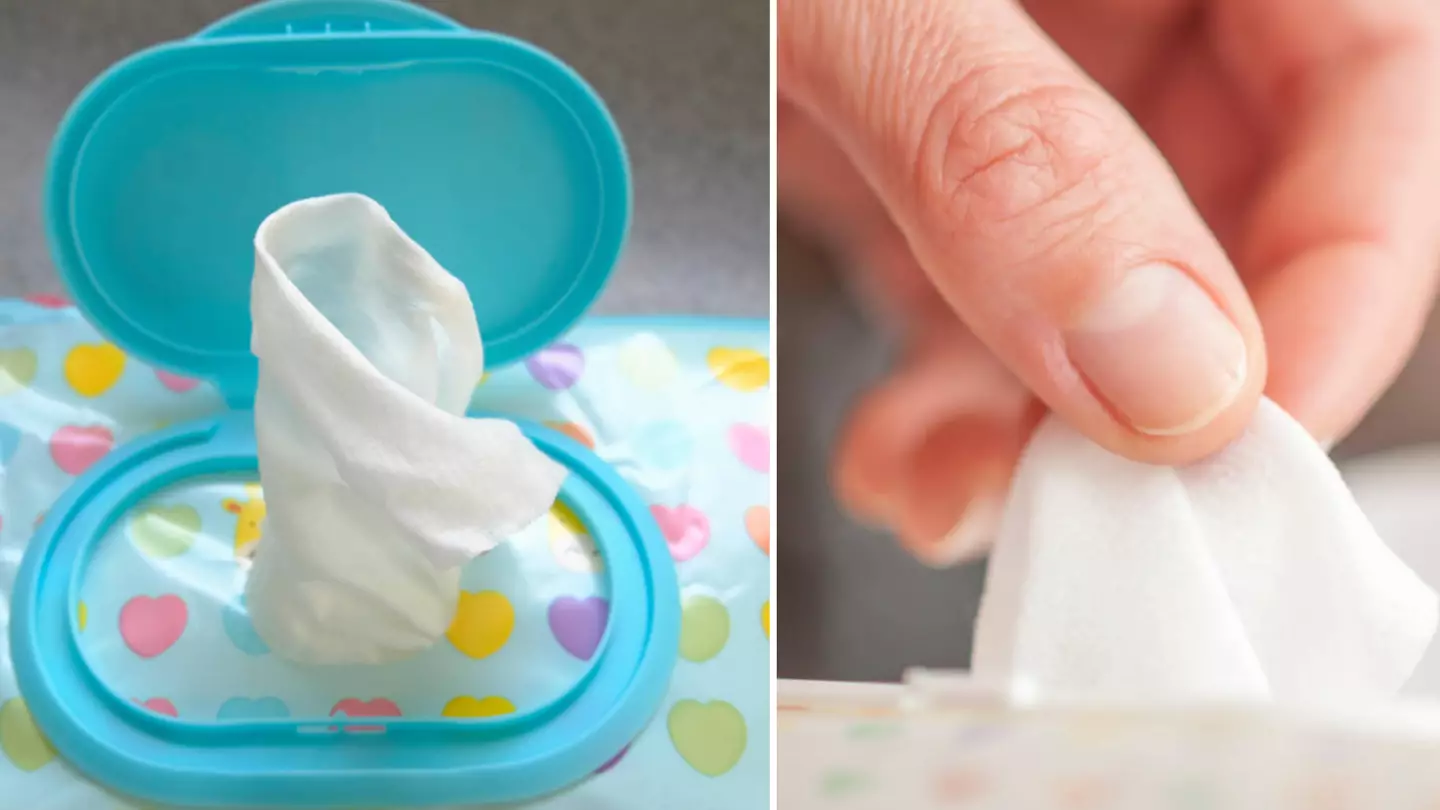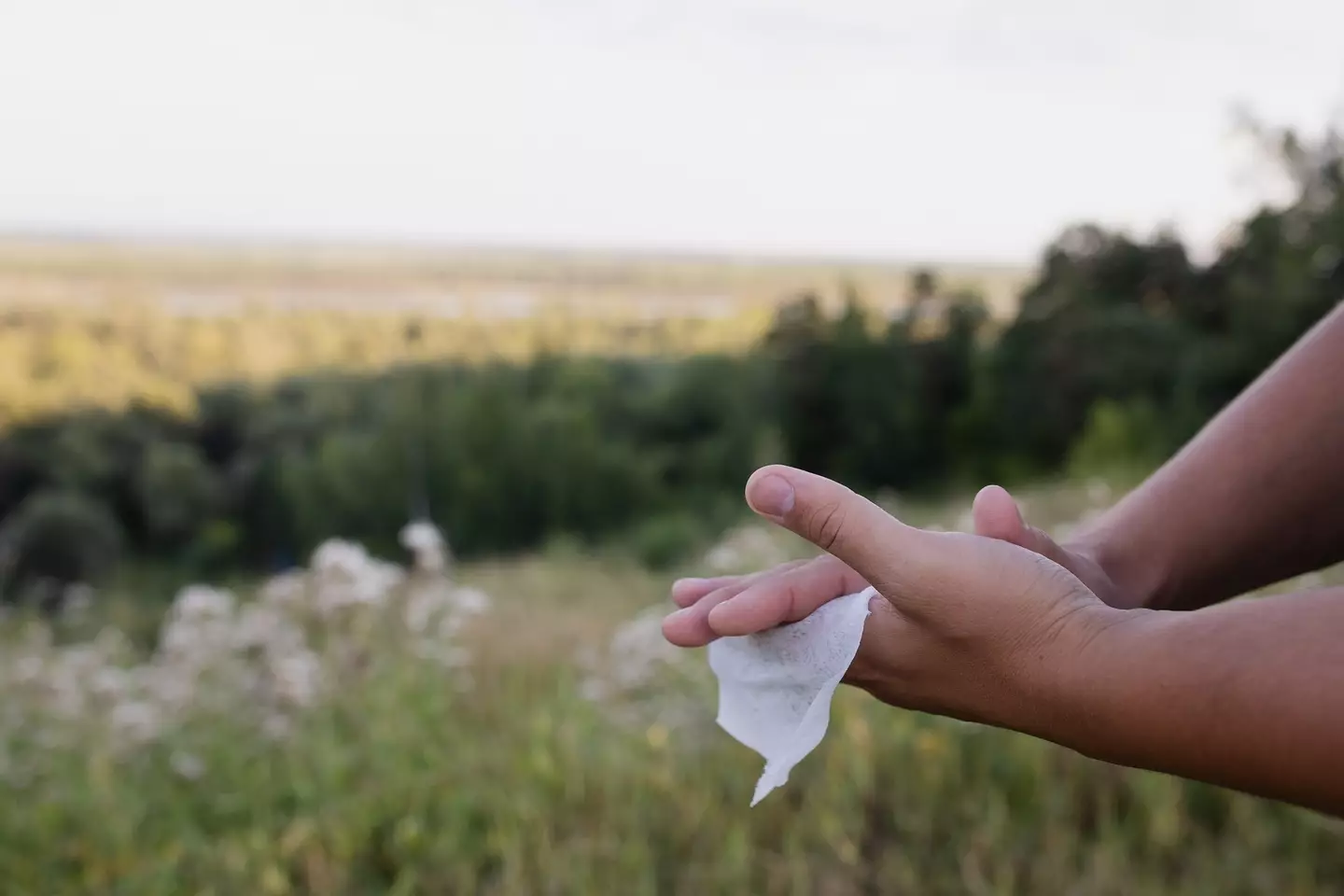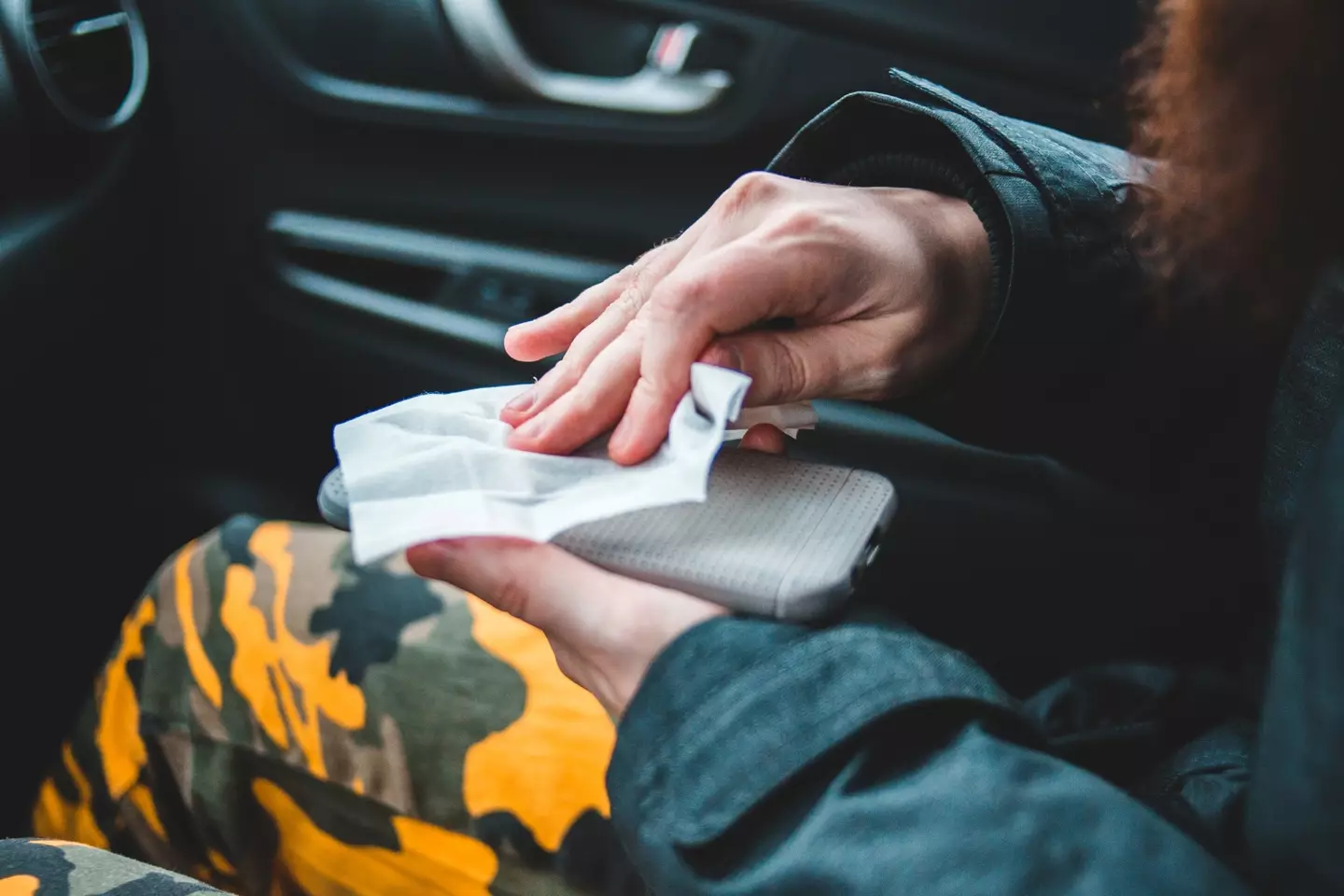
England is expected to introduce a ban on a huge number of wet wipes as part of a wider plan to improve the country's water quality.
Taking off makeup, cleaning kitchen counters, wiping sticky fingers; there are all sorts of uses for wet wipes, and as a result, Brits get through a huge number of the products every day.
It isn't necessarily the usage that's causing the problem here though - it's what happens to the wipes once we're done.

Advert
A lot of wet wipe packages urge users to throw the wipes in the bin once they're finished using them, but refusal to follow this demand means that a lot of wet wipes end up getting chucked in the toilet.
Wet wipes are responsible for a majority of sewer blockages, because the plastics in the wipes don't break down.
As a result, they get stuck together, preventing sewage from moving through pipes as intended. The obstructions can cost around £100m a year to clear up, and contribute to poor water quality in England.
In a bid to tackle the issue, environment minister Therese Coffey told BBC News that wet wipes containing plastic will be banned in England.
In 2021, it was determined that around 90 percent of wipes contained plastic, though there are now a range of alternative, plastic-free products on the market.
Some companies, including Boots and Tesco, have already made moves to ensure they do not stock wet wipes which contain plastic.

"Our proposal is to ban plastic from wet wipes," Coffey explained, though the government will need to undergo a short consultation before any bans are officially rolled out.
"It's a legal requirement to make sure that we can go ahead with any ban," the environment minister said.
The proposed ban also forms part of the Plan for Water; the strategy from Department for Environment, Food and Rural Affairs (Defra) to improve England's water quality.
The Plan for Water includes a potential ban on certain chemicals, as well as tackling pollution from farming and run-off from road traffic.

A ban on wet wipes has received support from water companies which spend millions of pounds to remove blockages, though some opposition political parties have claimed the ideas are too little too late.
Jim McMahon MP, Labour's Shadow Environment Secretary, commented: "This announcement is nothing more than a shuffling of the deck chairs and a reheating of old, failed measures that simply give the green light for sewage dumping to continue for decades to come."
The ban on wet wipes containing plastic is expected to come into force in the next year.
Topics: Environment, Health, Politics
